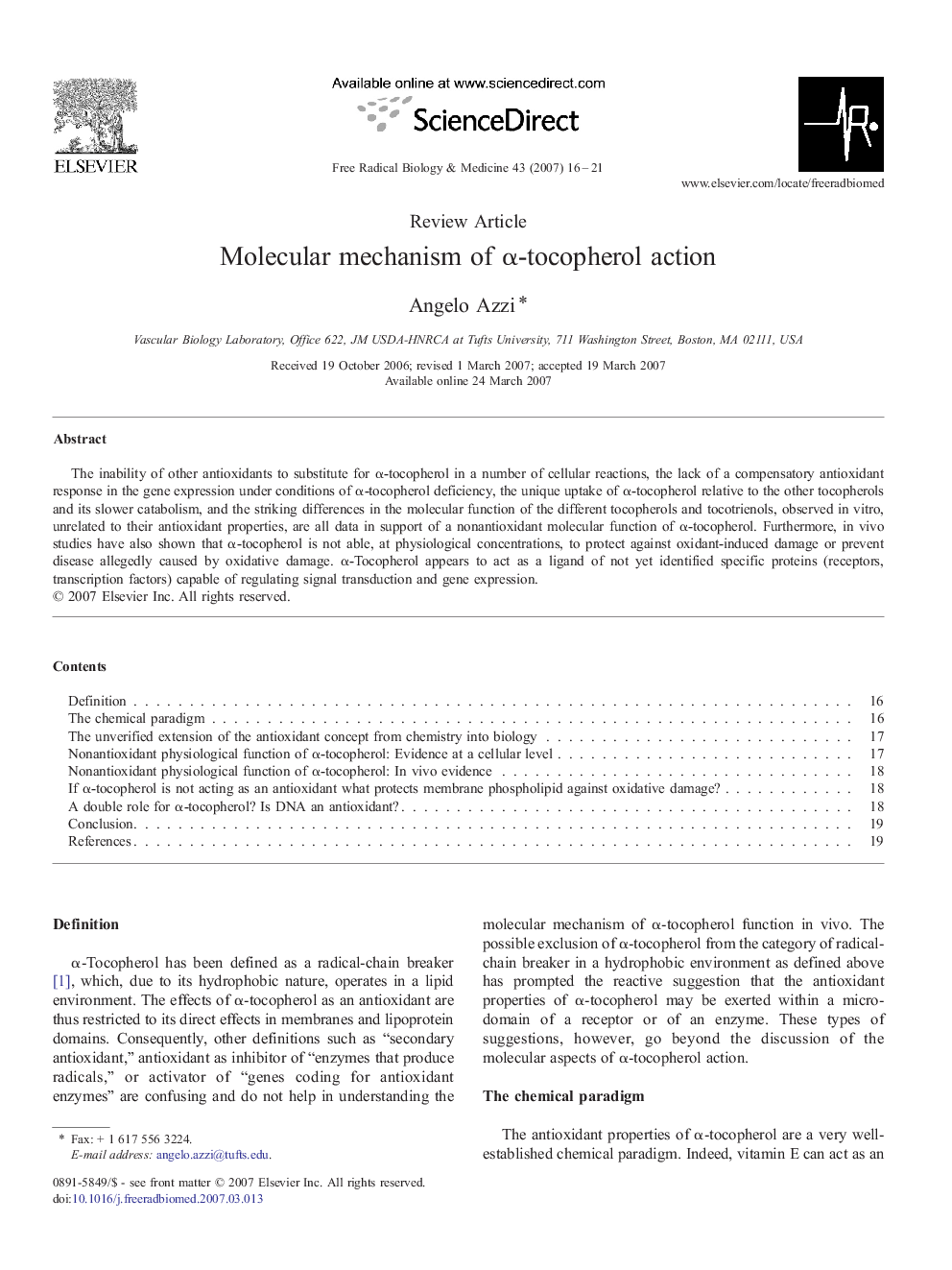| Article ID | Journal | Published Year | Pages | File Type |
|---|---|---|---|---|
| 1911651 | Free Radical Biology and Medicine | 2007 | 6 Pages |
The inability of other antioxidants to substitute for α-tocopherol in a number of cellular reactions, the lack of a compensatory antioxidant response in the gene expression under conditions of α-tocopherol deficiency, the unique uptake of α-tocopherol relative to the other tocopherols and its slower catabolism, and the striking differences in the molecular function of the different tocopherols and tocotrienols, observed in vitro, unrelated to their antioxidant properties, are all data in support of a nonantioxidant molecular function of α-tocopherol. Furthermore, in vivo studies have also shown that α-tocopherol is not able, at physiological concentrations, to protect against oxidant-induced damage or prevent disease allegedly caused by oxidative damage. α-Tocopherol appears to act as a ligand of not yet identified specific proteins (receptors, transcription factors) capable of regulating signal transduction and gene expression.
